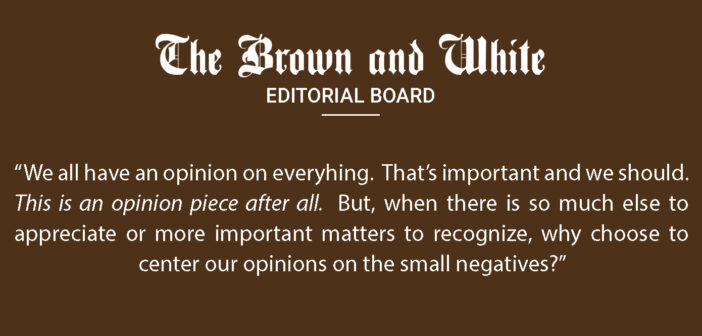With the second lowest ratings in its history, it’s reasonable to assume that you might not have been watching the 94th Academy Awards, popularly known as the Oscars, live on TV.
Regardless of whether you watched it or not, if there’s probably one thing you’ve seen and heard about from last week’s award show — the moment actor Will Smith walked on stage and slapped comedian Chris Rock across the face.
What was meant to be a joke about Smith’s wife Jada Pinkett Smith (perhaps in bad taste depending on your opinion of the situation) turned into the sudden attack followed by a slew of slurs from the actor.
Since it aired, anything and everything regarding the Oscars has been focused on the celebrity-on-celebrity attack — news articles, conspiracy theories, Tik Toks, you name it.
But is it really that important?
This year marked the most multicultural Academy Awards ceremony since its origin in 1929 — a show which has often, and justifyingly, been criticized for doing too little to celebrate the industry’s diversity — but all we’ve been focused on is the drama which unfolded.
Historic wins were made: Jane Campion won Best Director for “The Power of the Dog” — only the third woman to ever do so in film history, and only one of seven to ever be nominated. A Japanese film was picked for the second time in Oscar history for Best International Film. A film about a deaf family, cast almost entirely with deaf actors, won Best Picture. One of the most widely recognized actors of his generation, Samuel L. Jackson won his first ever honorary Oscar. These are only but a few of the notable wins from the night.
With so many more important reasons to be talking about the Oscars, why are we focusing our attention on what comprised one minute of the entire show?
People who should be remembered and recognized for these historic honors are now more likely to be forgotten for their achievements based on this trivial celebrity dispute.
Smith won Best Actor later that night for his role as Richard Williams, father of tennis champions Venus and Serena Williams, in “King Richard.” While his thank you speech included apologies to The Academy of Motion Pictures Arts & Sciences, along with his fellow nominees, he did not acknowledge Chris Rock.
Smith has since faced disciplinary proceedings and has decided to resign from The Academy, meaning he will no longer be able to vote on Oscar-nominated movies and performances each year. His work will still be eligible for future Oscars consideration and nomination.
This is not the first time we’ve seen such an act take place on stage. Back in 2009, rapper Kanye West stormed the Video Music Awards (VMAs) stage after Taylor Swift won for Best Video by a Female Artist, taking the microphone and exclaiming, “ Beyoncé had one of the best videos of all time! One of the best videos of all time!”
Remembering this moment in award-show history, the fact that the scandal is still talked about today, what is more than 10 years later, seems somewhat absurd. A drunk celebrity with a history of being rude acted out at an awards show. Why do we care so much? Why are we surprised?
It was nothing but celebrity drama and we ate it up.
There’s a clear pattern here: As humans, we love drama and will typically focus our attention on that rather than what may be more important.
Even Lehigh took to Twitter to talk about the “Smith vs. Rock” situation, tweeting about the “reality” of the situation.
We all have an opinion on everything. That’s important and we should. This is an opinion piece after all. But, when there is so much else to appreciate or more important matters to recognize, why choose to center our opinions on the small negatives?
Of course there are important things in life that we must focus our attention on that are not pretty. But, the difference is the weight of the matter. Climate change, for example, isn’t a fun topic but it certainly is necessary to discuss. Celebrity drama on the other hand, doesn’t carry the same need for everyone to turn their attention to it.
So, with that, we believe it’s important to think more critically about what you choose to exert your energy criticizing. Is it really that important? Aren’t there other things we could be talking about?
Let’s celebrate and discuss what is actually important.
If we start to do this, maybe we’ll begin to see a change in our mindsets, and thus, in our world.






Comment policy
Comments posted to The Brown and White website are reviewed by a moderator before being approved. Incendiary speech or harassing language, including comments targeted at individuals, may be deemed unacceptable and not published. Spam and other soliciting will also be declined.
The Brown and White also reserves the right to not publish entirely anonymous comments.